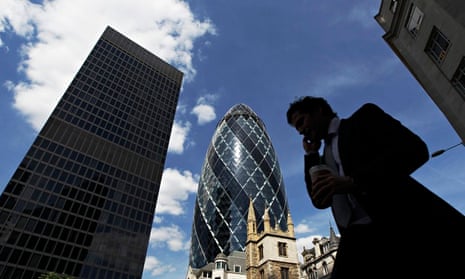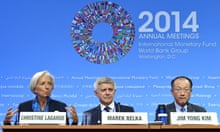For those of us who believe in a more just and equal world, reality is a relentless test of our optimism. Nearly half-a-million Britons are reported to have been driven to food banks in the first half of this year, and yet this is one of the most prosperous nations that has ever existed. Squalor is accompanied by unparalleled wealth: indeed, the fortunes of the richest 1,000 Britons have doubled during five years of economic trauma. Rampant greed goes unchecked, while benefit claimants, immigrants and public sector workers are relentlessly scrutinised and attacked. The global picture is even grimmer: according to the World Food Programme, 805 million people don’t have “enough food to lead a healthy and active life” despite there being more than enough food to feed every human being, while 67 billionaires possess as much wealth as the poorest 3.5 billion people.
Few would openly defend such grotesque inequality as a rational or just distribution of wealth, but any challenges to this system are easily dismissed. Selfishness and greed are often conveniently portrayed as innate human characteristics. By nature, it is argued, we are in it for ourselves. Attempting to build an order where people’s needs are prioritised over the interests of profit is doomed, because it goes against the grain of what it is to be human. Inequality fosters “the spirit of envy”, as Conservative London mayor Boris Johnson put it last year, adding that greed is a “valuable spur to economic activity”. An attack on capitalism is “an attack on human nature” itself, according to an essay by the American humanities professor Mark Hunter. All of which is the perfect justification of the status quo: we cannot live under any other system because of our own biological hardwiring.
So perhaps it is surprising to turn to the City for the evidence against this. Our financial sector, which plunged a large swath of humanity into economic turmoil, is perhaps the epitome of all the negative traits associated with modern capitalism. But a study published in Nature suggests it is the financial system that promotes dishonest behaviour: in other words, the individuals involved are not innately dishonest. The culture they work in is to blame, driving people to behave in a certain way. In the Square Mile’s daily newspaper, City AM, this research is presented as undermining the arguments promoted by “banker bashers” that the City attracts such people. Quite the reverse: it shows that if an environment successfully promotes selfishness, then it can equally nurture very different sorts of behaviour, too.
Another recent study also challenges this conveniently prevailing understanding of being human. Researchers from University College London conducted an experiment in which participants had to give up money if they wished to avoid themselves – or complete strangers – receiving electric shocks. The identities of the individuals were kept anonymous to the researchers to prevent them from feeling under pressure to act nicely. On average, they sacrificed about twice as much money to save a stranger from getting a shock as they would give up to avoid it themselves. Altruism is often framed as being disingenuous behaviour: we only act in a selfless way because we believe that we will be rewarded in kind. But nothing was gained here by acting selflessly to strangers. The human guinea pigs simply felt worse doling out punishments to others.
Another set of studies, conducted by Harvard and Yale academics in 2012, uncovered results suggesting we are not by our nature selfish creatures. Research at Princeton University found evidence that compassion is “an innate human response embedded into the folds of our brains”, as psychologist Dacher Keltner puts it. The reason we feel good when we help others has also possibly been discovered: compassion makes our bodies release more oxytocin into our bloodstream, the hormone that encourages bonding and friendship.
A debate still rages as to how much selfless or compassionate behaviour is down to our genes, or to the environment we are raised in. We do know that toddlers have been repeatedly observed attempting to help struggling adults without being prompted. But selflessness and co-operation actually make evolutionary sense. According to Michigan biologists, humans would have wiped themselves out if they were selfish above all else. Indeed, selfishness was actually weeded out by evolution. Put crudely, women did not want to have sex with selfish men in primitive hunting times, meaning their genes were less likely to be passed on. Our earliest state was rather different from the dog-eat-dog neoliberalism that reigns today, contradicting the idea that it’s simply the inevitable expression of our humanity. As primitive hunter-gatherers we were supremely co-operative, unlike our ape relatives, dividing food fairly between ourselves. Modern hunter-gatherer tribes have been found to punish selfish behaviour that violates an equitable order.
The world as it is currently constructed is living proof of just how selfish and greedy humans can be. We are quite capable of tolerating – or committing – sickening cruelty against other human beings. But we invariably have to strip away the humanity of others to overcome our strong sense of empathy. If we no longer consider another to be human, then as a species we are demonstrably able to inflict the most extreme atrocities against others.
But all the evidence should bring a sense of optimism to those, like myself, who want a rather different world. We are malleable creatures, crafted in part by our environment. Margaret Thatcher recognised this: just after assuming power she announced that her mission was to “change the way we look at things, to create a wholly new attitude of mind”. Her crusade certainly achieved many stunning successes, promoting greed and breaking down the bonds of solidarity that tied us together.
And yet that in itself should be a source of inspiration. If we can build a society that encourages greed and sentiments which justify inequality, then we can also build a society nurturing solidarity, compassion and equality. It has proven all too useful for defenders of our bankrupt order to portray it as the rational expression of humanity. But the opposing evidence is there, and it is stark. In a world where prosperity exists alongside such misery, it should give hope to those who believe there really is another way.






